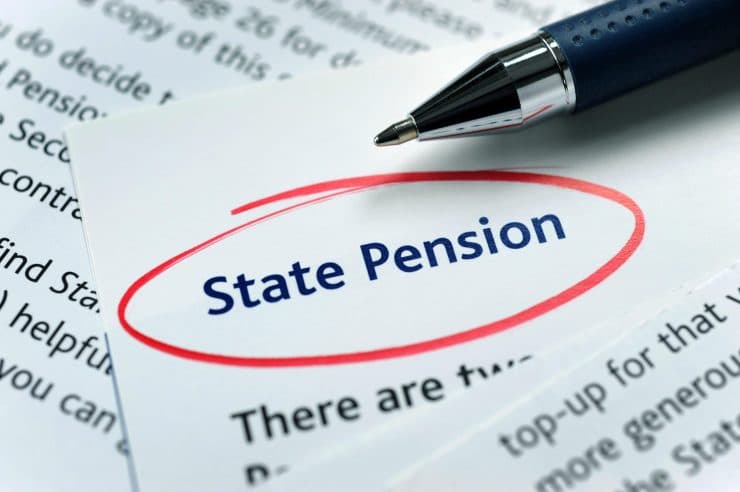State Pension Increase: How Much Will Pensions Rise in 2022
27/11/2021 - 5 minutes readHow much will State Pensions Increase in 2022?
State Pension Increase of 3.1% in 2022/23 has been confirmed by the government.
State Pension Increase will take effect from 11th April 2022 – the basic State Pension will increase to £141.85 per week and the full rate of new State Pension will increase to £185.15.
The decision was enabled after The Social Security (Up-rating of Benefits) Act 2021 received Royal Assent last week.
This legislation temporarily suspended the earnings element of the Triple Lock for one year only, following distortions to the earnings statistics.

In taking this decision, the government carefully considered the fairest approach for both pensioners and younger taxpayers, many of whom have been hardest hit by the financial impacts of the pandemic.
All other benefits will also be increased in line with CPI of 3.1%. This includes working-age benefits, benefits to help with additional needs arising from disability, carers’ benefits, pensioner premiums in income-related benefits, Statutory Payments, and Additional State Pension.
The actual amount you get depends on your National Insurance record.
The only reasons the amount can be higher are if:
- – you have over a certain amount of Additional State Pension
- – you defer (delay) taking your State Pension
You can get a State Pension forecast to find out how much you could get and when.
You can still get a State Pension if you have other income like a personal pension or a workplace pension.
You might have to pay tax on your State Pension.
If you’ve reached State Pension age and you’re on a low income, you may also qualify for Pension Credit, even if you’ve saved money for retirement.
Your first payment after the State Pension Increase
Your first payment will be within 5 weeks of reaching State Pension age. You’ll get a full payment every 4 weeks after that.
You might get part of a payment before your first full payment. The letter will tell you what to expect.
Your payment day after the State Pension Increase
The day your pension is paid depends on your National Insurance number.
You might be paid earlier if your normal payment day is a bank holiday.
| Last 2 digits of your National Insurance number | Payment day of the week |
|---|---|
| 00 to 19 | Monday |
| 20 to 39 | Tuesday |
| 40 to 59 | Wednesday |
| 60 to 79 | Thursday |
| 80 to 99 | Friday |
Valuing your National Insurance contributions and credits made before 6 April 2016
Your National Insurance record before 6 April 2016 is used to calculate your ‘starting amount’. This is part of your new State Pension.
Your starting amount will be the higher of either:
- – the amount you would get under the old State Pension rules (which includes basic State Pension and Additional State Pension)
- – the amount you would get if the new State Pension had been in place at the start of your working life
Your starting amount will include a deduction if you were contracted out of the Additional State Pension. You may have been contracted out because you were in a certain type of workplace, personal or stakeholder pension.
If your starting amount is less than the full new State Pension after the State Pension Increase
You can get more State Pension by adding more qualifying years to your National Insurance record after 5 April 2016. You can do this until you reach the full new State Pension amount or reach State Pension age – whichever is first.
Each qualifying year on your National Insurance record after 5 April 2016 will add about £5.13 a week to your new State Pension. The exact amount you get is calculated by dividing £179.60 by 35 and then multiplying by the number of qualifying years after 5 April 2016.
How can MCL Accountants help?
Contact MCL Accountants on 01702 593 029 if you have any queries on the State Pension Increase or if you need any assistance with the preparation and submission of your business accounts or self-assessment tax returns to HMRC.
- ABOUT
- REQUEST A QUOTE
Ishan provides financial management, taxation and transactional advice to business entities of all sizes. His expert areas include statutory compliance, business taxation, personal tax & transactional processing and systems. Industry sectors include professional services, retail, hospitality and entertaining & media and advertising services.

0 Comments